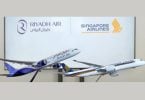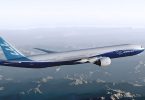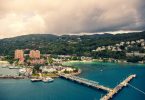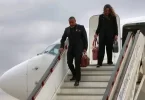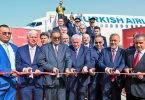NEW YORK – Fewer people will fly this summer, according the Air Transport Association, and those who do should expect higher fares and crowded flights.
“I think that a rise in fares is inevitable,” said James May, president of the industry group ATA, speaking at a press conference in Washington, D.C. Tuesday.
May blamed soaring fuel prices. The ATA estimates that jet fuel costs will rise to a record-breaking $59.5 billion in 2008, compared to $41.2 billion in 2007. The cost of fuel currently makes up 36.5% of the price of a ticket, compared with 15% in 2000, according to the ATA.
May would not estimate how much he expects fares will rise. But Philip Baggaley, fixed income analyst at Standard & Poor’s, said the airlines won’t be able to push them up much further.
“We believe that it’s going to get harder and harder to increase fares because of the weak economy and the fact that there have already been a series of fare increases,” he said.
Delta (DAL, Fortune 500), United Airlines (UAL) and American Airlines (AMR, Fortune 500) announced their most recent fare increase, of an additional $20 for a roundtrip ticket, on May 8.
May, the ATA president, blamed the weak economy, fuel prices and capacity cuts for the projected reduction in passengers. He projected the number of passengers to drop this summer to 211.5 million, from 214.2 million during the June-to-August period last year. At the same time, he expects planes to be 85% full because of reduced capacity.
The airline industry is scaling back flights and grounding planes to try and save money, but the skies are still crowded. To alleviate congestion, May said the ATA is trying to get access to military airspace on the East and West coasts
At the same meeting, Greg Principato, president of the Airports Council International-North America, said that bad weather is a top culprit in delaying flights. To help stranded passengers, Principato said most airports will keep one food vendor operating 24 hours a day, and will provide cots, blankets and pillows.
money.cnn.com
(eTN): Fewer passengers will fly, but planes will still be crowded | re-post license | post content



